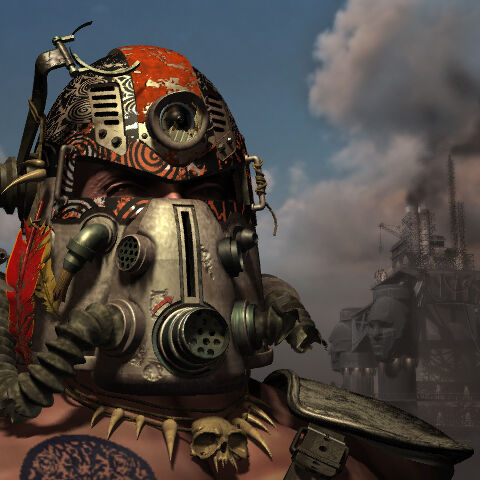I’m looking to get inspiration for my own writing. I need a hard sci fi series where earth (and earthlike worlds) are too rare, inaccessible, and/or previously spoiled beyond ability to sustain life. Bonus points if it is set on a multi-generational space station or starship without any other options and goes into detail about life support, living space, mineral mining and expansion of the station to accomodate a growing population, and daily life of it’s residents.
If anyone remembers Drifter Colonies from Titan A.E., that’s what’s in my head.
I’m looking for The Martian levels of realism, and I’m fine with a bit of “Unobtanium” clichés if they’re not core to the story.
The Bobiverse series is about a person who dies and wakes up as an AI that must replicate itself across the stars, while humanity ends on Earth.
The Interdependency series by John Scalzi portrays a society where some number of star systems, containing only one habitable planet which is at the very far reaches of the wormhole network, are connected together by wormholes. The society is called “the Interdependency” because every orbital habitat, dome and underground city is hugely dependent on trade with other habitats… without robust transfer of goods and raw materials EVERYONE would die… and this DOESN’T prevent stupid, short sighted, greedy humans from gambling with the stability of it all for their own personal economic and political gain. Fun books. Like most Scalzi, it’s not too deep. But it’s lots of fun.
That’s what immediately came to my mind!
Can vouch for that series. Great fun.
Someone what mentioned Kim Stanley Robinson’s Red Mars trilogy, and that is really good, but his book Aurora is almost exactly what you are describing.
Highly recommend.
I was looking for Aurora. I also think it’s right on the money. Gets into the weeds with micro ecosystems.
The idea that humans need the diverse micro ecology of earth in order to not become ill over the course of generations is pretty interesting.
The idea that humans need the diverse micro ecology of earth in order to not become ill over the course of generations is pretty interesting.
Really pretty well-supported by current science, too. I teach chemistry at a community college, so maybe I’m an outlier, but I read a ton of current research about the importance of diversity in “gut biomes” and the damaging effects of monoculture on global ecology, etc.
It seems pretty clear that even if engineers could solve the physical and chemical issues with a generation ship, the limiting constraints are almost certainly going to be biological and ecological, and KS Robinson’s estimates for the upper limits seem pretty reasonable based on current knowledge
Maybe have a look at The Long Winter Trilogy by A.G. Riddle (available at kindle unlimited)
Maybe not “hard” enough for you (eg. it has absibles) but Becky Chambers’s Record of a Spaceborn Few is about life on a fleet of generation ships.
Inverted World by Christopher Priest is kinda this.
Surprised no one has mentioned The Expanse series. A ton of world building in very different kinds of environments. Space stations, small ships, big ships, generation ships, asteroids, moons, planets.
The environments are well thought out in how the residents would need to adapt
Cibola Burn especially was really cool with the world building. Things that you don’t really hear of in other novels or even think of like the fact that alien plant life would be completely inedible to us are dealt with in detail.
It was the first thing I thought of but I thought Earth was still too viable for OP in the first few books, plus the science isn’t The Martian level hard.
The whole premise of the book is returning to earth, but The 100 starts out in the way you’re wanting including multigenerational space stations and resource limitations.
Lucifer’s Hammer by Larry Niven is a fantastic book that might be near what you are looking for. It’s about an asteroid impact on Earth, this removes a lot of the population and infrastructure and the story focuses on a few different groups of people as they make do with what they can find or scavenge, and then the resource battling that goes on between groups.
A story line I remember well is on a group that found an abandoned neighborhood and were astonished to find that it still had running water from the nearby local dam/reservoir. They lived here for quite a while in their relative luxury until it just stopped working one day. A burst pipe in some other neighborhood had slowly drained the dam faster than they would have used it up.
Anyway, it’s a great book because it feels so realistic as to what would really happen and the struggles people would actually be going through.
Alas, Babylon. Earth Abides. On The Beach. The Road. One Second After (this one is meh).
If you want some other good collapse survival books similar to Lucifer’s Hammer.
Yes, Earth Abides is also good! I had forgotten about that one until I saw your comment
Children of Time is nearly exactly what you’re looking for. The whole series doesn’t follow nicely with what you’re looking for but the focus remains on that aspect of things for lack of wanting to spoil anything. If nothing else read the first book, it’s exceptional.
Wholeheartedly agree. I’ve read the first and second, and liked the first the most. Still planning to read the third eventually.
I also should mention I “read” them on audible, and the narrator was good too.
I didn’t realize there was a 3rd. I’m gonna have to go find it now
FYI if you, like me, did not realize the third book was out, it is! I just bought it, gonna start it tonight
It’s a very non traditional story structure (at least to a western reader) but The Three Body Problem series has a lot of plot revolving around the lack of inhabitable worlds.
Wasn’t there a ship, or two, that had to escape into deep space for like, a long long time?
!yes, in fact those ships end up being very important to some big events in the last 2 books!<
I’ve come to believe that once we seriously get into Space, there will come a point where “Planets” are not our primary residence at all.
I feel like O’Neal Cylinders have the advantage of a controlled environment and the lack of a gravity well hindering further exploration.
Frank Herberts “WorShip” (aka Pandora Sequence) series should fit the bill. At the very least the first two books, ‘Destination: Void’ and ‘The Jesus Incident’.
The basic premise goes something like:
Humanity shot off into space to find another planet to live on. To survive the journey serious advanced AI needs to be created. AI shenanigans ensue. Humans are dumped on a super hostile planet, highly unfit for human life. As one of humanities last lifelines the AI demands to be worshipped as a god.
The Mars series by Kim Stanley Robinson definitely fits the bill. The Ministry of the Future does too but it is more about the coming climate change disaster.
Love me some KSR.
His Mars series is my sci-fi Lord of the Rings.
If you also accept TV series, Battlestar Galactica may interest you.
It deals with a small fleet of survivors desperately seeking a new home planet, who live in constant paranoia due to the enemy being able to plant sleeper agents within their crews. I remember they had to mine asteroids for fuel.












